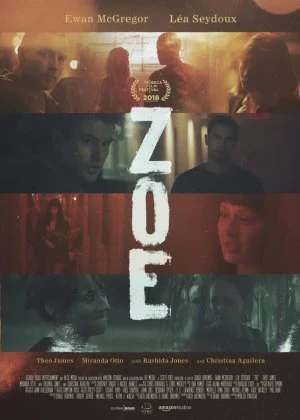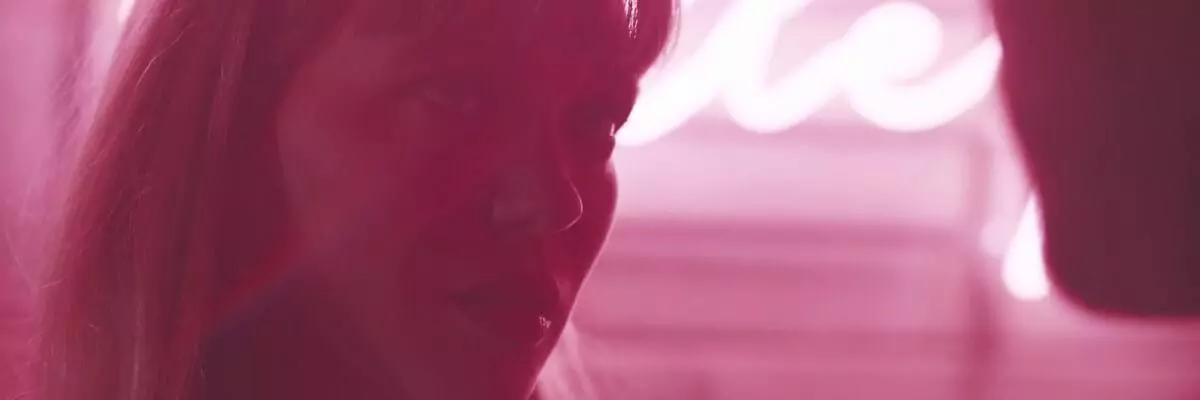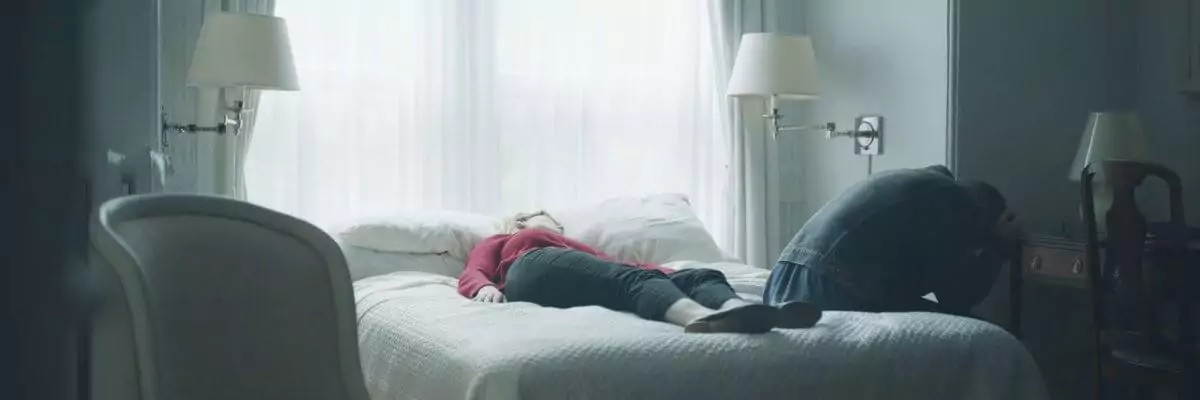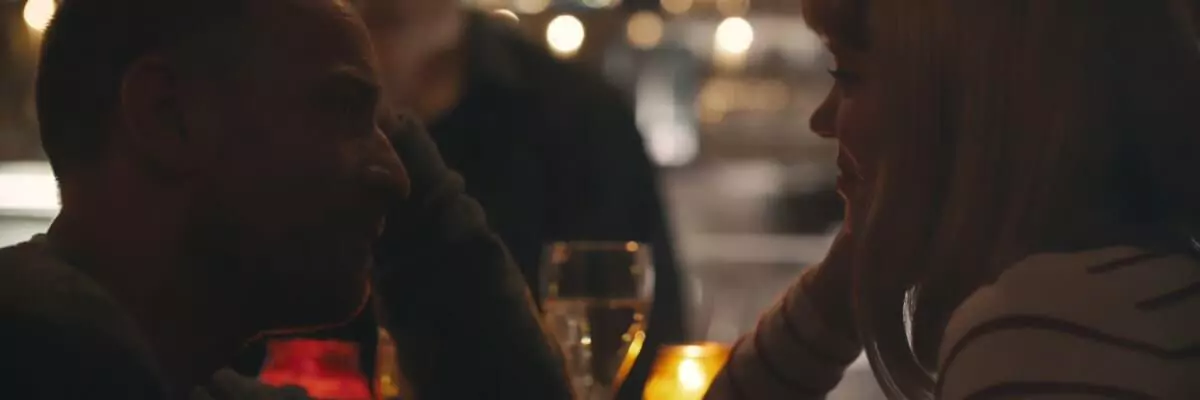Zoe

Even though Zoe is only the second Drake Doremus film I watched, I have to admit that I came in with rather high expectations. Doremus is quickly making a name for himself as the American saviour of romance cinema and Zoe is a film that confidently underlines those accolades. Challenging himself even further, Doremus married the romantic core of the film with some heavy sci-fi concepts and succeeded where so many have failed before. It's probably not for everyone, but it's exactly the kind of sci-fi film I've been looking for these past years.

In a sense Zoe is everything I expected Black Mirror to be, based on how people raved about that series. Turns out I really didn't like Black Mirror very much, primarily for all the ways in which it differed from this film. Zoe features a director who dares to put a signature style on his work, it has things to say about humanity's future but doesn't force-feed you a tired old sci-fi narrative and it takes its time to establish its characters and the universe they inhabit. Zoe feels like a well-rounded product with artistic merit, not like cheap tech-doom adapted for TV consumption.
Even though Doremus is getting a lot of credit (and deservedly so) for his unique take on the romance genre, his work doesn't exist in a complete vacuum. Stylistically Zoe reminded me more than a little of Sam Esmail's Comet. Maybe even more surprisingly though, the film also reminded me of Boe's Reconstruction, in the sense that Doremus too confronts his audience with something explicitly fake, only to carry on and sweep them off their feet regardless. Doremus' approach is a bit more subtle and integrated compared to Boe's, but both films are structured around that same core idea that even though you may fully realize something is fake, it can still feel real and it can still hurt.
The plot of the film revolves around Cole, a developer of synthetic humans who is trying to build the perfect companion for humanity. When Zoe, his co-worker slash next-gen prototype unaware of her true self (not a spoiler!) falls madly in love with Cole, things get a little tricky. Even though Zoe performs much better than anticipated, Cole himself is having trouble loving a machine built for companionship. Cole slowly warms to Zoe's attention, but there's an immovable wall that stands between them.

Doremus has a very recognizable style and it's on full display here. The camera work in particular is a big driver for the film's success, both functionally and aesthetically. Overview shots often feel like the camera is spying on the characters, looking in through doors, hiding behind objects and edging around corners. When the camera gets closer it's as if you're switching to a ghost perspective, restlessly trailing, circling and zooming in on the characters. Because Doremus likes to catch his leads during small but intimate moments, you get the feeling you're inadvertently witnessing something very personal. Use of color is also excellent and perfectly reflects the mood of the characters (reds and yellows for warm and tender moments, whites and blues for more tragic scenes), while the somewhat fuzzy quality of the visuals further adds to the romantic feel of the film.
The music too is perfectly tailored to the mood, though I have to say that I preferred the original score to the existing music. I guess it has a lot to do with the fact that I generally prefer instrumental music, but the songs were sometimes on the edge of being too sentimental, though Doremus never truly crosses that line. It's a minor quibble though, because the way he applies the music throughout the film to create emotion and to support and strengthen scenes is miles ahead of what most other directors are capable of.
Because the camera is often close to the characters and because the film relies a lot on non-verbal communication, the need for an excellent set of actors was high. Luckily Léa Seydoux and Ewan McGregor are perfect for their parts, with Seydoux acing that exact balance between human and synthetic that the film required. The casting of the secondary parts is solid too, with good performances from Theo James, Rashida Jones and Christina Aguilera, but ultimately it's Seydoux and McGregor doing most of the heavy lifting.

Themes like artificial intelligence and androids rarely cover much new ground, just about every modern sci-fi film is trying to push these narratives nowadays. Zoe definitely isn't the first film to explore the relationship between humans and androids, but Doremus goes about it in a much smarter way. Rather than try to shoehorn a romance into a sci-fi story (like Blade Runner and others have attempted in vain), Zoe is a romance infused with the necessary sci-fi elements and it's all the better for it. It's a reverse approach that makes so much more sense you have to wonder why others didn't catch on.
The film has some interesting things to say about what we consider to be "real" and how our concept of "real" is in a constant flux. Just like some people still struggle to see the digital world as something real, synthetics will be considered fake until the point when they aren't anymore. These are mental barriers that are torn down by younger generations and even though Doremus sometimes overreaches (especially during the final 20 minutes), I wouldn't be surprised if the vision laid down here will become a meaningful reality in some way or another. When that will be is a big question mark of course, but I'm pretty sure it's coming.
Though the sci-fi runs quite deep in Zoe, the film is a romance first and foremost. If you're biased against romances, I'm afraid this film isn't going to do much to change your mind. Doremus is an unmistakable talent though and he elevates the genre to a level rarely seen in the US. Zoe is extremely stylish, sports superb performances and combines smarts with relevance. It's a well thought-out mix of genres that dazzles from start to finish.